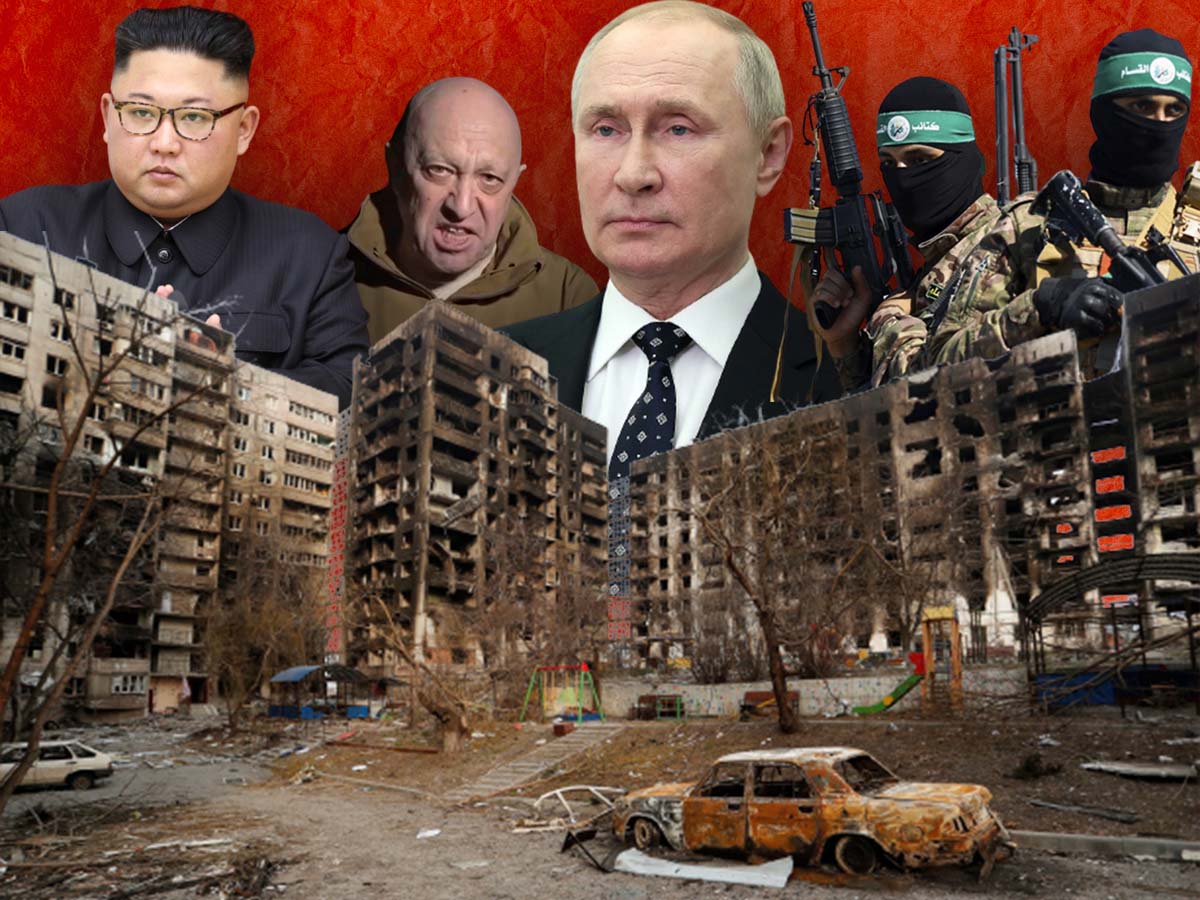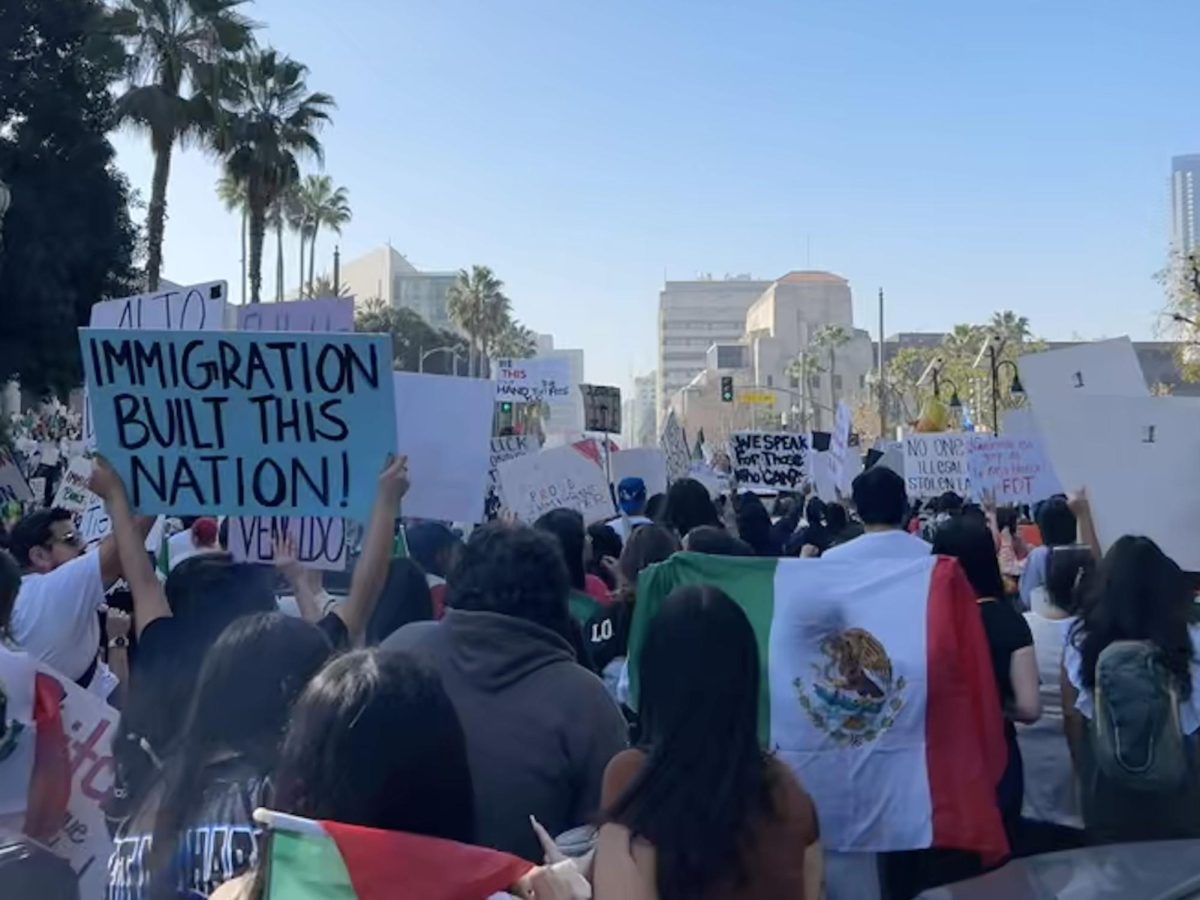Social media feeds, once full of funny cat videos and lifehacks, are now filled with footage of war-devastated cities, while the carefree days and spontaneous adventures are replaced with a constant fear of losing one’s home and loved ones.
Nearly half a century since the end of the Vietnam War, the world is once again witnessing major wars that alter the geopolitical landscape, international diplomacy, and, most significantly, the post-Cold War world framework. Why, in the era of Mars exploration and artificial intelligence development, has the world returned to war?
In 2022, Vladimir Putin’s deployment of Russian troops to Ukraine not only tainted modern history with the blood of thousands of innocent Ukrainian citizens, ignited a severe refugee crisis, and caused total destruction of several Ukrainian cities, but also divided history into a distinct ‘before’ and ‘after’ by disrupting the global sense of safety – nobody is safe from war anymore.
In the second year of the Russo-Ukrainian war, a new conflict flared up in the world, shocking the global community with its sheer brutality and barbarism. On October 7th, during a Jewish holiday, Hamas terrorists launched a surprise attack from Gaza into Israel.
The attack resulted in significant casualties, with about 1,200 Israeli civilians reported killed, and escalated the Israeli-Palestinian conflict, with the Gaza death toll surpassing 10,000. A year and a half after the horrifying footage of atrocities committed by the Russian troops in Ukraine was first published, the world once again faced modern-day terror – this time, in the Middle East. With the scale of violence rising globally, we need to suppress its source before the possibility of a third world war becomes a grim reality.
The global framework established after World War II endured for most of the past century and was characterized by a bipolar system dominated by two superpowers: the United States and the Soviet Union. Each superpower controlled its own sphere of influence with little interference from the other while maintaining diplomatic communications that allowed for negotiations, treaties, and crisis management. Moreover, the nuclear arms race between the United States and the Soviet Union created a state of mutually assured destruction, which acted as a deterrent against direct major conflicts due to the catastrophic consequences such conflict would entail.
“The potential for devastation and destruction that this arms race program entailed, in a strange way, also kept people in line and not wanting to turn the Cold War into a hot war,” said Dr. Mark Lauer, Advanced Studies The Cold War Era teacher.
Essentially, the United States and the USSR acted as two ‘global policemen’ guarding world peace. Although the Cold War period was not without conflict, the balance of power between the two dominant superpowers and the nuclear arms race prevented the outbreak of another world war, contributing to a period that was, on a global scale, free from widespread and destructive conflicts.
Following the end of the Cold War, though, the global landscape shifted: the collapse of the Soviet Union inevitably weakened Russian economy. Being thrown into turmoil by the cardinal economic reforms of the 1990s, Russia could no longer hold its position as a ‘policeman’ in the global arena.
Unlike Russia, the United States continued to take an active part in addressing international conflicts and crises with the intention of promoting worldwide stability, whether through a military intervention in the Bosnian War in 1995, a military invasion of Iraq in 2003 or special operations against ISIS and other jihadist groups in Syria.
“Partly how the U.S. alone preserved peace then was by conducting limited military interventions primarily in the Balkan states and investing in relationships with allies, like investing in the NATO alliance and working with other countries to build ties,” said Dr. Lisa Koch, Assistant Professor of Government at Claremont McKenna College.
With the United States acting as the sole ‘policeman’ of the global order, humanity has depended on the strategy of containment, believing that adversaries will refrain from attacks to avoid mutually assured destruction. Yet, in the face of Putin’s repeated threats of aggression towards Ukraine, the U.S. and Western nations have continued to rely on this strategy.
Nonetheless, containment has not deterred Putin from initiating the largest war in Europe since World War II, publicly supporting and allegedly transferring weapons to the Hamas terrorist group, and deepening ties with the North Korean dictator Kim Jong Un. With America’s minimal response to military aggression overseas, the balance of power is tipping toward autocratic regimes and militaristic dominance.
The collapse of the USSR degraded the checks and balances of international relations and undoubtedly triggered several conflicts around the world. However, for more than 30 years since its collapse, the world has not seen major wars – so why has everything changed now?
Without the USSR as a counterbalancing force, America experienced rapid development over several decades. Such a pace did not allow for radical changes to be fully integrated into society, and, as a result, the two dominant centers of power – the Democrats and the Republicans – developed in starkly different directions. The rise of social media, a push for conversations around racial injustice, and an increasing income gap are a few of the numerous factors contributing to the rapidly increasing polarization of American society that turned the U.S.’s attention inward, reducing its engagement in foreign affairs.
“The kind of polarization we have is the Republican Party adopting more populist foreign policies, while the Democratic Party is still generally following more traditional democratic foreign policy goals, like building alliances and promoting freer trade,” Dr. Koch said.
The controversies associated with the 2003-2011 Iraq War also profoundly affected U.S. foreign policy and its approach to international conflicts. This conflict, initiated on the unsubstantiated allegation that Iraq held weapons of mass destruction, saw U.S. forces involved in violations of human rights, including secret imprisonments, torture, and other forms of cruel and inhumane treatment of Iraqis. Beyond the severe impact on Iraqi civilians, the war led to substantial human casualties within the U.S. military and significant economic losses, with the expenditure amounting to trillions of dollars for war financing. The immense financial expenditure on international affairs during the Great Recession financial crisis contributed to a growing skepticism among many Americans about the value and outcomes of American foreign military interventions.
“The 2008 financial crisis really hit a lot of people hard,” said Stephen Hebert, humanities department faculty. “There was a sentiment amongst a lot of people that we need to figure out our own stuff here before we can really be helpful elsewhere. How are we going to keep American workers employed? How are we going to keep food on the table? These were very real questions.”
Rising on this sentiment, American isolationism also became a contentious aspect of Donald Trump’s presidency, branded by his administration as “America First.”
“In the last 10 years, the Republican Party has abandoned a lot of the positions that it held in favor of new positions that are more populist,” Dr. Koch said. “It is becoming more and more populist, and the greatest example of that being when Donald Trump becomes the head of the Republican Party, and then the President of the United States. A populist leader is going to set foreign policies that fall under the category of ‘my country first.’”
Shifting toward nationalism and protectionism in U.S. foreign and domestic policies, Trump completely erased the image of the United States as the ‘global policeman’, which instilled a sense of impunity and gave free rein to Putin and Hamas. With the U.S.’s weakened position on the world stage, the entire global order, built on a system of containment, suddenly became fragile. Following the same logic, when the police force in a city cannot effectively combat criminal activity, disorder and chaos unfold in its streets.
It’s crucial to emphasize that Russia, under Putin’s leadership, continues to be one of the primary instigators and backers of military aggression in today’s world. However, the United States failed to offer substantial opposition to him and his supporters, merely voicing concerns. In light of this, American taxpayers have every right to ask: why should we be the ones paying for the peace in the world?
Setting the emotional aspects aside and focusing on the U.S. from an economic standpoint, peaceful conditions facilitate trade by ensuring safe and reliable transport of goods and services across borders. The U.S. economy is highly integrated into global markets and heavily depends on their stability. Stable global peace contributes to predictable financial markets. On the contrary, wars prompt mass refugee migrations and substantial spending on aid to those involved in the conflict, inevitably diverting funds from America’s major export partners. In short, a destabilized world order obstructs international trade, resulting in detrimental effects on the United States economy.
To prevent the outbreak of future wars, the United States must re-establish the balance of power that has preserved worldwide peace for half a century. However, with Russia currently unable to act as a counterbalancing force, the U.S. must entertain other options to uphold international peace. A new bipolar superpower system could be built through a strategic compromise with another major global power: China. During the APEC Summit meeting on November 15th, Chinese leader Xi Jinping expressed to President Biden that China and the United States, while being starkly different, are ‘fully capable of rising above differences’, considering that a potential conflict would have severe consequences for both countries.
“I firmly believe in the promising future of the bilateral relationship,” Xi Jinping said.
Such a system, with the world divided into the American and Chinese spheres of influence, would resemble the Cold War balance of powers. Although it is not the perfect solution, it would likely guarantee the absence of major conflicts.
Alternatively, another potential solution could be a multipolar system, with power shared among the U.S., The European Union, China, and, potentially, post-Putin Russia. In such a case, nations will maintain stability not by relying on military deterrence policies but by negotiating and reaching compromises. Regardless of what the framework will be, the cost for maintaining the current status quo is too high. Whose lives will pay the price next?






![Many Webb students spend their free time in the library watching a popular TV show like Riverdale and Euphoria. “Based off what I’ve seen, like in Euphoria, because the actors are older, they don't showcase an actual high school life properly,” Sochika Ndibe (‘26) said. “Since [the actors] are older [and] playing a teenager, from a girl’s perspective, it is going to make you think you should look more developed at a young age.” The actor, who plays Veronica Lodge, was 22 years old at the time of filming.](https://webbcanyonchronicle.com/wp-content/uploads/2025/03/Antecol-Media-affects-how-society-functions-graphic-1200x900.png)


